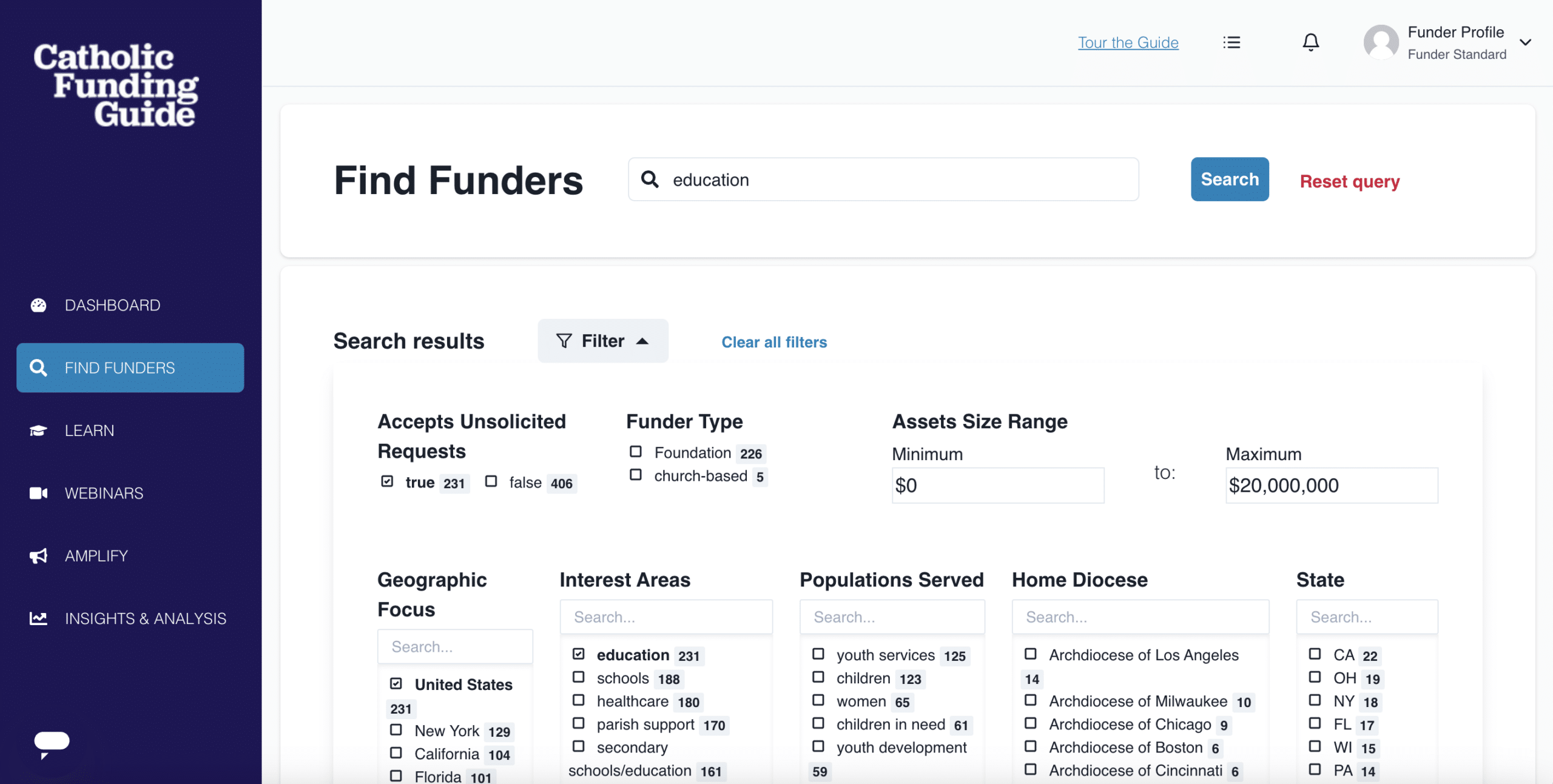What Is a Philanthropy Network?
A philanthropy network is a group created for philanthropists to foster community, work toward a common goal, share best practices, and grow in their giving practices. Typically, philanthropy networks are membership based.
Types of Philanthropic Networks
There is a wide variety of philanthropy networks created for funders with diverse interests, backgrounds, giving preferences, and more.
These networks often cater to a specific group of philanthropists. Networks may be created based on geographical location, similar beliefs or shared faith, giving interests (poverty, education, or the environment, for example).
Philanthropy networks offer various features to connect grantmakers and philanthropists by providing peer network events, learning opportunities and certificate programs, access to resources, philanthropy awards, and advising services. Philanthropy networks also provide co-funding opportunities and the chance to identify and share the most impactful solutions to issues in your area of interest.
Why Join a Philanthropic Network?
There are many reasons why it could make sense for you to join a philanthropy network. These include:
- Build connections, community, and friendships.
- Bond with those who share your values.
- Enjoy peer learning opportunities.
- Attend exclusive events; for example, FADICA (Foundations and Donors Interested in Catholic Activities) offers retreats, symposiums, and conferences.
- Grow your network and attend networking events.
- Influence change in innovative or structured ways.
- Take advantage of structured learning opportunities, such as webinars, classes, certifications, conferences, and training; for example, FADICA offers safeguarding resources and training.
- Explore new ideas for funding, strategy, impact, long-term financial sustainability, and more.
- Stay inspired in your work and encourage other philanthropists.
- Discover more opportunities to do good.
- Find co-funding opportunities.
- Partner with other funders to work towards common goals. Within regional philanthropy networks, for example, members generally share an interest in serving a particular geographical area.
Where Can You Find a Philanthropy Network?
Some philanthropy networks have easy-to-find websites and some do not. You can try searching online—especially for national networks—and see what turns up. Additionally, you can ask your connections and even your grantees to see what networks they may participate in or know about.
If there are any funder networking events in your local area, you may be able to learn about networks there as well.
If you’re a philanthropist who has been inspired by the Catholic tradition, you may be interested to learn more about FADICA: Catholic Philanthropy Network.
How to Decide If You Should Join a Philanthropy Network
Now it’s time to make a decision. To join or not to join? If there are a handful of networks in your consideration, here are some points to weigh as you decide.
- Does the network align with your values and goals?
- How will this network help you to carry out your philanthropic work?
- What do current members think about the network? If possible, talk to them about their experience. Ask questions such as:
- Why did you join this network?
- What do you like about it?
- What do you dislike about it?
- Do you recommend it? Why or why not?
- What are the benefits of joining this network? It is important to make sure you understand this fully before committing.
- Do you currently meet the requirements of the network, such as location, focus area, and asset amount; or can you realistically meet them?
Philanthropy networks may host a “learn more” or “get to know us” event for prospective members. Find out if the network hosts one, and if you can attend. After learning as much as you can about the organization, write down the pros and cons of joining. Discuss the list with your staff (if you have one) and your advisors. Consider any time constraints you might have that would impact your ability to utilize the membership, and then you should be able to decide whether it’s worth it for you to join.
Can Funders Join Multiple Philanthropy Networks?
Is it realistic to join multiple philanthropy networks? It may be, depending on your goals, time, and interests. Each network has its own stipulations and cost. Check any restrictions or rules, while keeping in mind your own time constraints and availability.
About FADICA: A Philanthropy Network for Catholic-Inspired Funders
Foundations and Donors Interested in Catholic Activities (FADICA) connects philanthropists through a membership community to ensure lasting impact in support of a vital Church and human flourishing. FADICA spiritually enriches the Catholic philanthropic community, both individually and collectively.
FADICA is a membership network of over 50 private foundations and philanthropists. FADICA is governed by a Board of Directors and its daily operations are executed by a small but mighty staff located in Washington, DC.
FADICA welcomes foundations and donors who support Catholic initiatives, ministries and institutions and who are eager to share, connect, and exchange within a private network of Catholic philanthropists.
Learn more about FADICA and how you can get involved.


